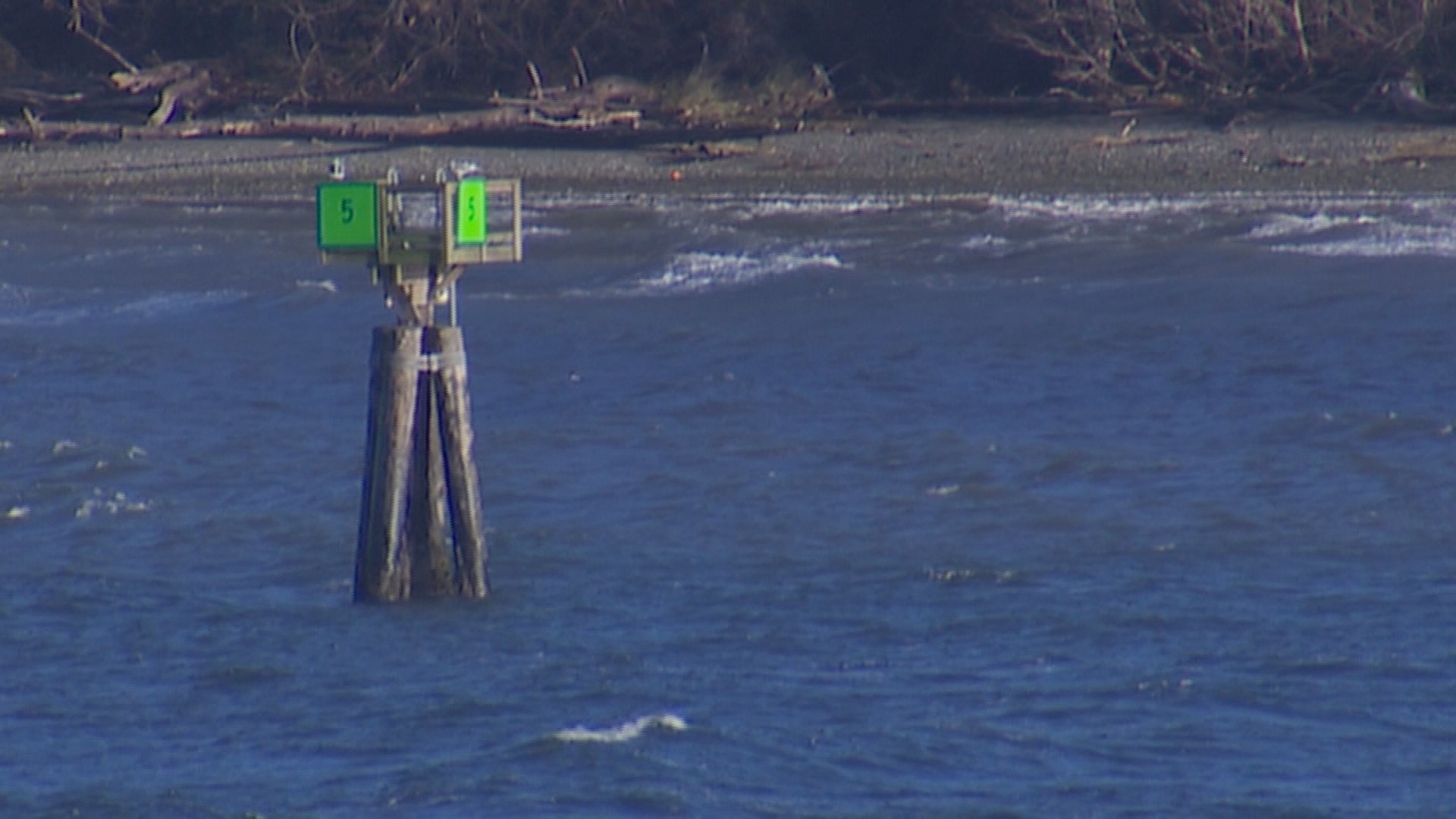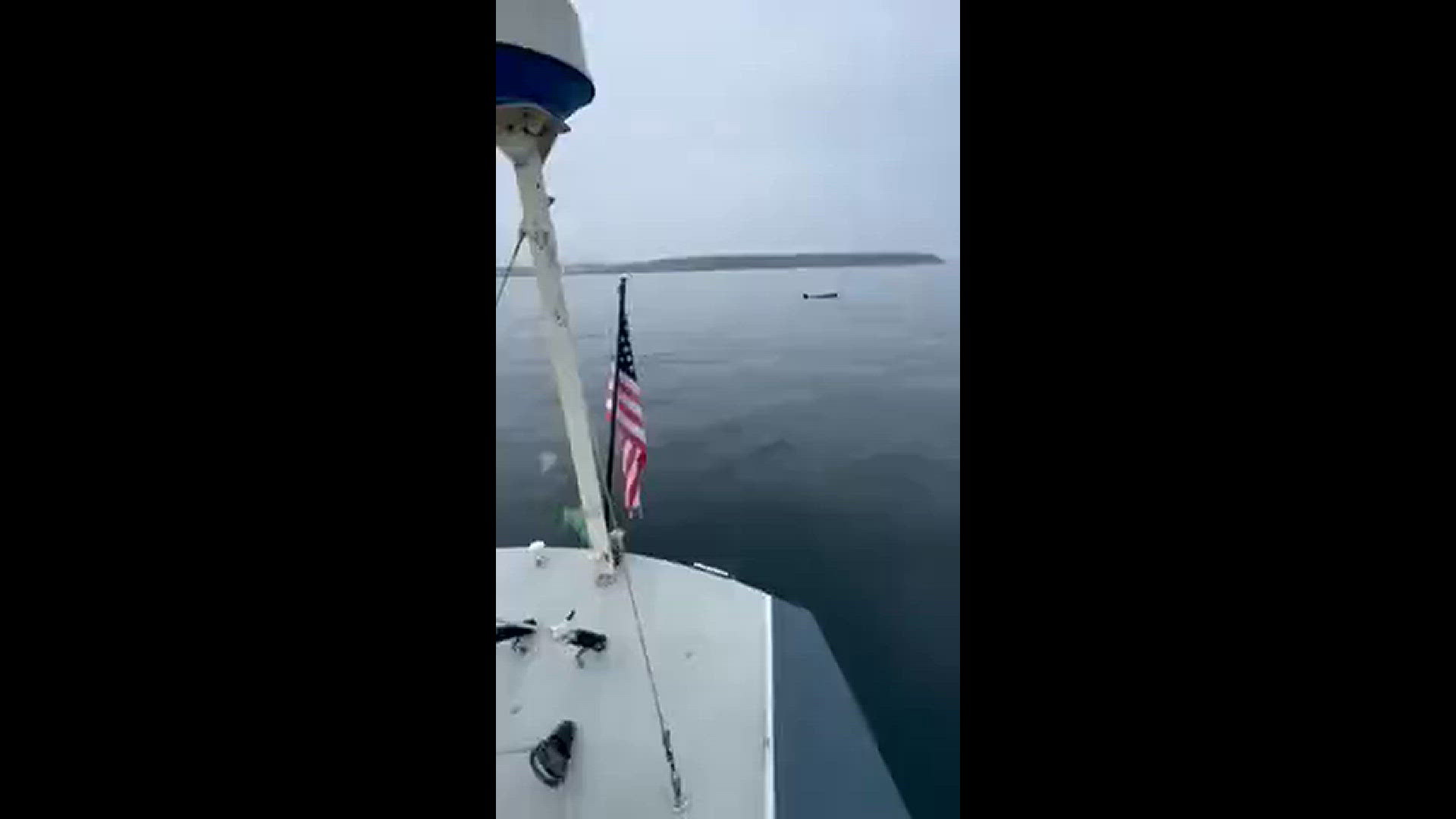A five-year study released Wednesday shows that ocean acidification is getting worse in Puget Sound and needs drastic action to stop the trend.
Around the same time the study began, oysters set off an alarm at Baywater Shellfish Farm in Port Ludlow, owned by Joth Davis.
"It's been a struggle to get what we need. Eventually, more or less we make it by the end of the season, but it's a real struggle," he said.
Davis is one of many around Puget Sound dealing with ocean acidification. As carbon in the air gets trapped in the water, shellfish have a hard time growing a shell.
"We are still having problems at the larval level, and that's impacting the availability of oyster seed when people want it. It's a lot tougher to raise oysters than it used to be," Davis said.
The study shows it's worsening more quickly in Puget Sound than on Washington's coast. The southern Hood Canal area is hardest hit.
"Ocean acidification threatens Washington shellfish, fisheries industries, and the coastal communities that depend on them," stated Governor Jay Inslee in a statement released with the report. "Our state is on the front lines of responding to these threats through the leadership of the Blue Ribbon Panel on Ocean Acidification and the Marine Resources Advisory Council. We must keep up the momentum and leadership and continue to take bold action to protect these resources for future generations."
The study highlights several focal issues:
- Atmospheric CO2 in the Puget Sound area is increasing faster than along Washington's coast and faster than the global average. Southern Hood Canal shows the highest surface seawater values of pCO2 in Washington coastal waters.
- Human-generated atmospheric CO2 is a major source of ocean acidification around Puget Sound and Washington coastal waters.
- Several local species from pteropods to Dungeness crab are showing sensitivity to ocean acidification, suggesting impacts to the entire marine web including salmon and whales.
- Impacts may be more severe in nearshore coastal waters than in offshore open ocean waters because corrosive conditions are closer to the surface in nearshore coastal waters and in Puget Sound.
The problem will likely intensify and may risk the future of the food web.
"Twenty years from now, I'm very concerned. It's progressive. We're seeing the tip of the iceberg. It's scary," Davis said.
Scientists are now looking at growing kelp to help stop ocean acidification. Like trees do for the air, it eats carbon in the water. Davis is helping with this project, and not just for his own business.
"I think it's one of the most important things we have going for us…In a lot of ways, the heart of many Northwesterners that can go out and still gather dinner from the sound. It's very special," he said.
The Marine Resources Advisory Council (MRAC) saw a need to re-evaluate the 2012 strategy, resulting in this 2017 Addendum to the Blue Ribbon Panel's 2012 report. The Addendum released Wednesday is a companion report that expands upon the 2012 work.
View the full Ocean Acidification report.


